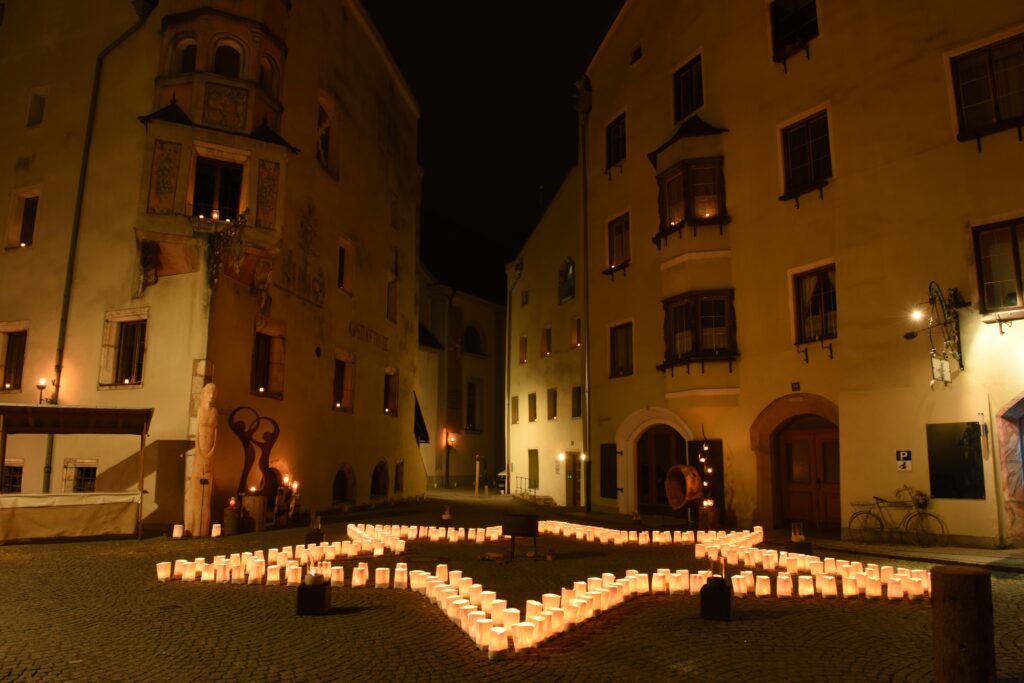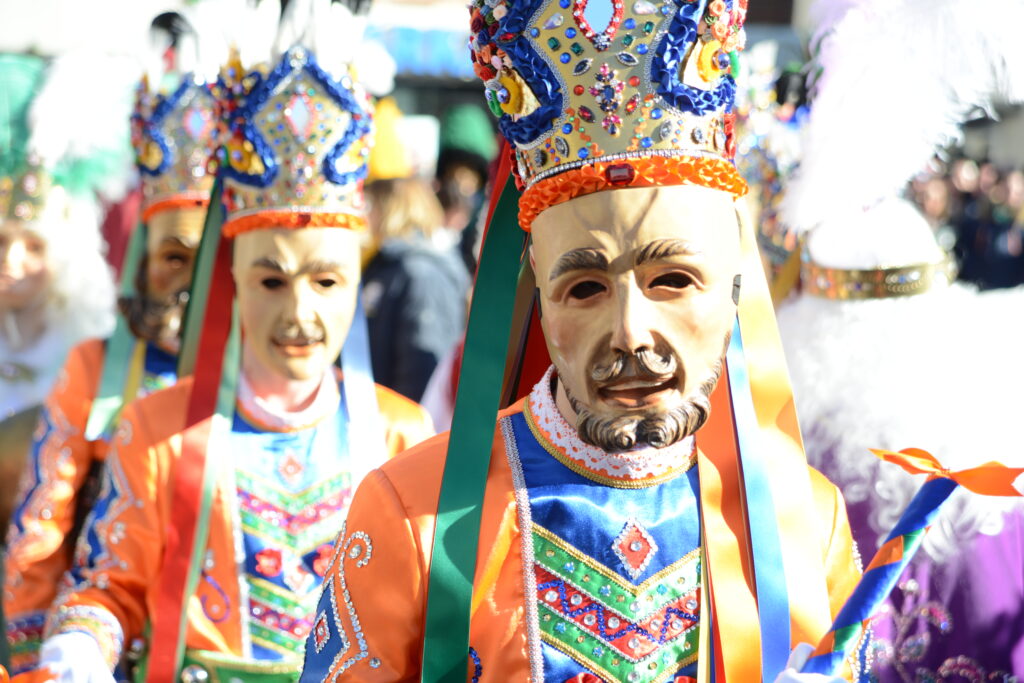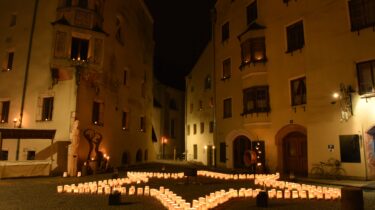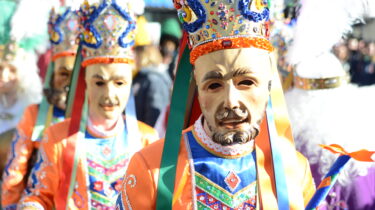Cultural highlights in Tirol this winter
Last updated on 10.11.2022
For many guests and locals, winter in Tirol means fantastic skiing and snowboarding, idyllic winter hikes and tobogganing races with friends and family. But the Heart of the Alps has much more to offer besides its outdoor sports. Check out the cultural events in Tirol this winter and use your holiday to sample some of the best customs, traditions, music and celebrations in the region.
Watch out for Krampus!
The “Krampuslauf” is a centuries-old custom still very popular (and much-feared) in Tirol. It revolves around Krampus, a half-man half-goat creature who accompanies Saint Nicholas (the origin of our modern Santa Claus) as he visits children on 5 December. While Saint Nicholas brings presents to children who have been good, the fearsome Krampus punishes those who have been bad. Today, Krampus processions come in many different forms – but they all revolve around the basic premise of local men dressing up in heavy goatskins and fearsome wooden masks to bring mayhem to the streets.
The Krampuslauf in Tarrenz on 6 December 2022 is a good example of a traditional procession. There are no elaborate shows with large floats and modern masks. Instead, locals still wear hand-carved masks passed down through the generations and costumes made of real lambskin and goatskin. The event begins at 20:00 with a procession through the village. There is a shorter and less scary children’s version the day before on 5 December. The Lienz Krampus Days on 5 December are a great experience for the whole family. Here the Krampuses – called “Klaubauf” in the local dialect – are out and about on the streets of East Tirol’s largest town to punish those who have not lived according to the virtues of Saint Nicholas during the year.
All dates and further information at www.tyrol.com/krampus-processions

Christmas markets
It is not only the mountain backdrop that makes the Advent and Christmas season in Tirol so special. It is also the deeply rooted traditions and unique atmosphere at the Christmas markets frequented by guests and locals alike. Traditional Christmas carols and culinary delicacies shorten the wait for Christmas and sweeten this cold and dark time of year.
We recommend a visit to the Rattenberg Advent in the Alpbach Valley. It is probably the most original Christmas market in Tirol, not least because there are no stalls but just a small bar serving hot drinks – though the town’s famous glassblowers do open up their workshops to showcase their wares. Rattenberg Advent is also unlike other Christmas markets in the fact that it has no electric lighting. On Saturdays in Advent, the historic alleys of Austria’s smallest town are lit by candles, torches and open fires, creating a very special atmosphere. The Christmas market in Mayrhofen inthe Zillertal Valley is also surprisingly different. It takes place at the Waldfestplatz, a clearing in the forest surrounded by huge, ancient trees. The atmosphere is small and introspective, with the focus on local handicrafts. Visitors and locals alike sit around the open fire, drink mulled wine and sample traditional food from the region as brass bands and singers provide a serene musical backdrop.
More details of Advent and Christmas markets can be found at www.tyrol.com/christmas-markets

Carnival
“Fasnacht”, the local word for carnival, is a centuries-old custom that still captivates entire villages today. These exuberant celebrations and colourful traditions are even included on the UNESCO World Cultural Heritage List. Despite dating back many centuries, they are as alive as ever in many places in Tirol. Carnival processions take place throughout the region in February and all have one central theme in common: the battle of spring against winter. The celebrations are an impressive sight with magnificent hand-carved masks, elaborate clothing and decorated floats lovingly curated every year by local groups keen to keep these traditions alive.
The Fisser Blochziehen, for example, is one of the largest carnival celebrations in the Alps. The event takes place every four years – the next edition is scheduled for 29 January 2023. The centrepiece is a 30-metre-long, colourfully decorated Swiss stone pine tree – called a “Bloch” – pulled on a sledge through the village by various colourful characters. The carnival procession lasts until late afternoon, including playful elements such as witches and the “Schwoaftuifl” whose job it is to make mischief among members of the crowd. At the end of the celebrations the valuable Swiss stone pine is auctioned off and the proceeds go towards the next carnival, village community projects and local charities. On 12 February 2023, one of the most colourful carnival customs in the Alps will take place: the Nassereither Schellerlaufen. This tradition, which is over 270 years old and held only every three years, has been part of the UNESCO Intangible Cultural Heritage List since 2012. The focus is on primitive figures who parade through the village in splendid robes and impressive masks. Weeks and months before the parade the village is abuzz with preparations for this event which brings the whole community together.
Further information and dates for the carnival celebrations in Tirol can be found at www.tyrol.com/carnival

Tirolean Winter Festival Erl
For many years, the sound of the Tirolean Festival Erl has found great resonance far beyond the region’s borders. Far away from the big cities, fertile ground has developed here for music at the highest level. Works that have undeservedly fallen out of fashion have become an integral part of the festival. For example, this year’s festival will feature Mercadante’s rarely performed opera “Francesca da Rimini” as well as Donizetti’s extremely popular opera buffa “Don Pasquale”, which immediately became a huge success after its premiere. The festival’s final night ends things an enjoyable note with melodies from Millöcker operettas. There is also a series of concerts around New Year, concluding with the final concert on 8 January 2023 set against the breathtaking backdrop of the snow-covered Kaiser Mountains.
All details on the Tirolean Festival Erl’s winter programme can be found at www.tiroler-festspiele.at
For more information on cultural events in Tirol please visit www.tyrol.com/events.



